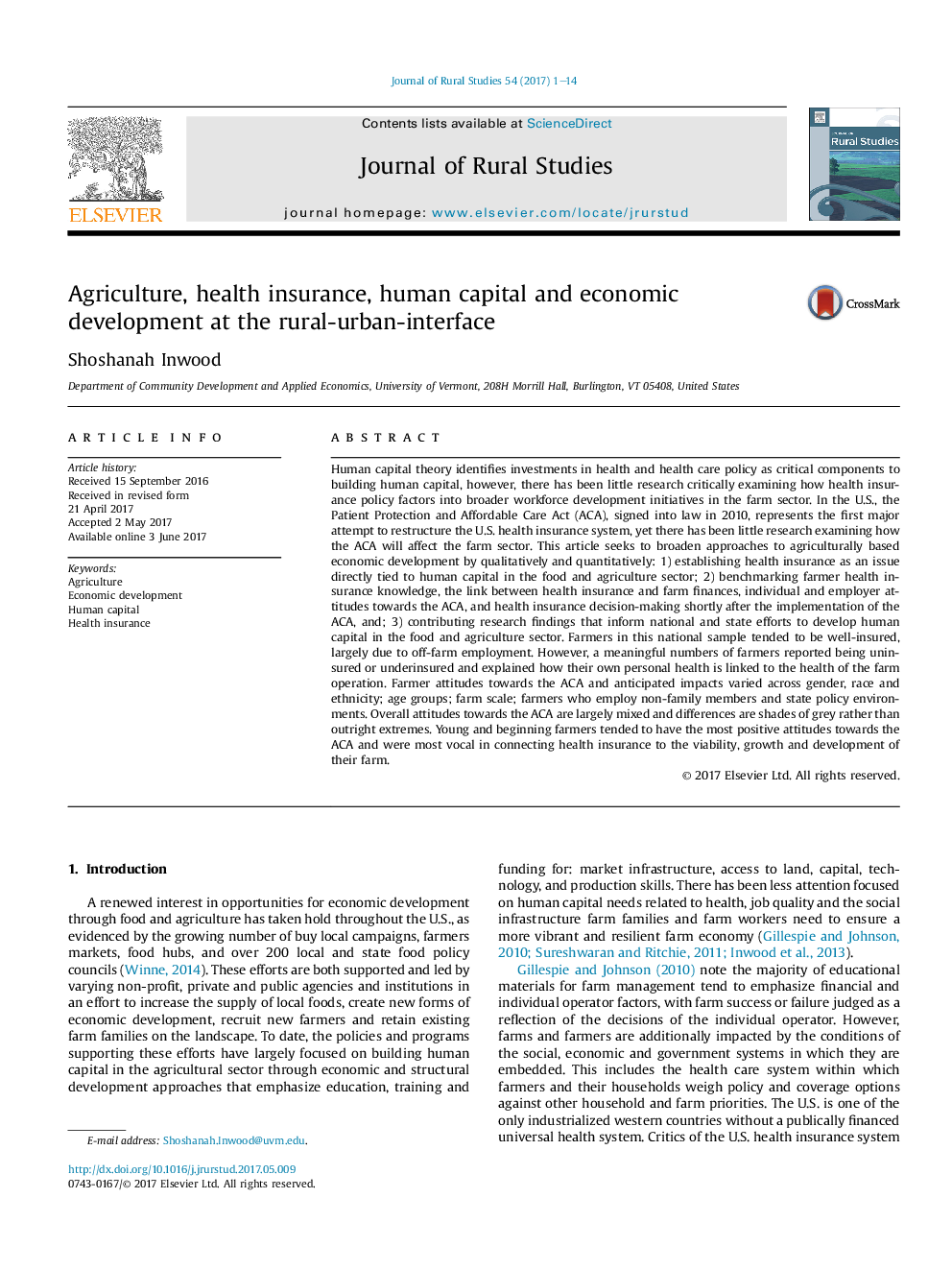| Article ID | Journal | Published Year | Pages | File Type |
|---|---|---|---|---|
| 6460009 | Journal of Rural Studies | 2017 | 14 Pages |
•Establishes health insurance as a metric of job quality in the farm sector.•Attitudes towards health insurance reform vary across farmer demographics and farm structure.•Young and beginning farmers have the most positive attitudes towards health insurance reform.
Human capital theory identifies investments in health and health care policy as critical components to building human capital, however, there has been little research critically examining how health insurance policy factors into broader workforce development initiatives in the farm sector. In the U.S., the Patient Protection and Affordable Care Act (ACA), signed into law in 2010, represents the first major attempt to restructure the U.S. health insurance system, yet there has been little research examining how the ACA will affect the farm sector. This article seeks to broaden approaches to agriculturally based economic development by qualitatively and quantitatively: 1) establishing health insurance as an issue directly tied to human capital in the food and agriculture sector; 2) benchmarking farmer health insurance knowledge, the link between health insurance and farm finances, individual and employer attitudes towards the ACA, and health insurance decision-making shortly after the implementation of the ACA, and; 3) contributing research findings that inform national and state efforts to develop human capital in the food and agriculture sector. Farmers in this national sample tended to be well-insured, largely due to off-farm employment. However, a meaningful numbers of farmers reported being uninsured or underinsured and explained how their own personal health is linked to the health of the farm operation. Farmer attitudes towards the ACA and anticipated impacts varied across gender, race and ethnicity; age groups; farm scale; farmers who employ non-family members and state policy environments. Overall attitudes towards the ACA are largely mixed and differences are shades of grey rather than outright extremes. Young and beginning farmers tended to have the most positive attitudes towards the ACA and were most vocal in connecting health insurance to the viability, growth and development of their farm.
